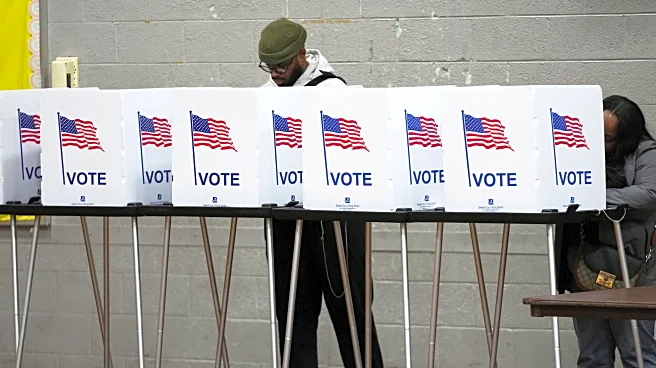What's Happening?
A ceasefire between Israel and Hamas has been announced, aiming to end the conflict that has devastated the Gaza Strip. President Trump addressed world leaders, emphasizing the need for rebuilding efforts.
Despite the ceasefire, significant challenges remain, including governance of Gaza, potential disarmament of Hamas, and withdrawal of Israeli troops. Immediate concerns focus on delivering food and medicine to the affected population, highlighting the dire humanitarian conditions persisting in the region.
Why It's Important?
The ceasefire marks a critical juncture in the Israeli-Palestinian conflict, with potential implications for regional stability and international relations. The humanitarian crisis in Gaza underscores the urgent need for aid and reconstruction efforts. The situation affects geopolitical dynamics, with stakeholders including the U.S., Israel, and Palestinian authorities navigating complex diplomatic and security challenges. The outcome of these efforts could influence peace prospects and the broader Middle East political landscape.
What's Next?
The international community is expected to play a role in facilitating aid and supporting reconstruction in Gaza. Discussions on governance and security arrangements will be crucial in determining the region's future. Political leaders and humanitarian organizations will likely engage in negotiations to address these issues. The success of these efforts will depend on cooperation among key stakeholders and the ability to address underlying tensions.
Beyond the Headlines
The ceasefire raises ethical and legal questions about accountability and justice for those affected by the conflict. Long-term peace efforts may require addressing historical grievances and ensuring equitable development in Gaza. The role of international law and human rights in shaping future policies will be pivotal in achieving sustainable peace.










